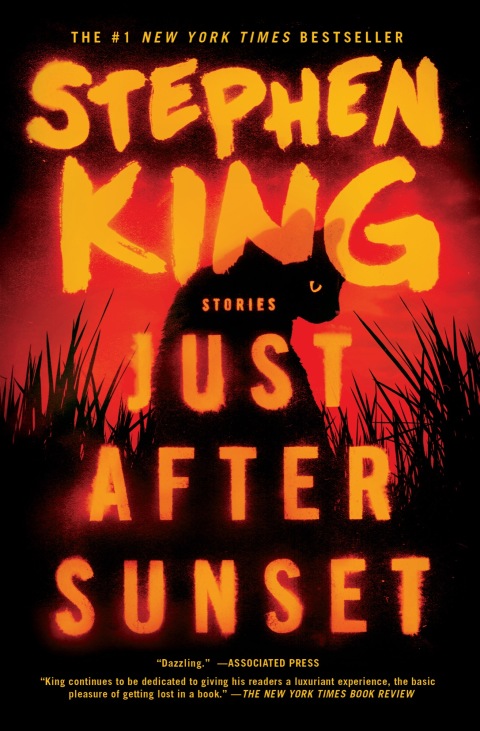
Just After Sunset PDF
Preview Just After Sunset
Stephen King -- who has written more than fifty books, dozens of number one New York Times bestsellers, and many unforgettable movies -- delivers an astonishing collection of short stories, his first since Everything's Eventual six years ago. As guest editor of the bestselling Best American Short Stories 2007, King spent over a year reading hundreds of stories. His renewed passion for the form is evident on every page of Just After Sunset. The stories in this collection have appeared in The New Yorker, Playboy, McSweeney's, The Paris Review, Esquire, and other publications.
Who but Stephen King would turn a Port-O-San into a slimy birth canal, or a roadside honky-tonk into a place for endless love? A book salesman with a grievance might pick up a mute hitchhiker, not knowing the silent man in the passenger seat listens altogether too well. Or an exercise routine on a stationary bicycle, begun to reduce bad cholesterol, might take its rider on a captivating -- and then terrifying -- journey. Set on a remote key in Florida, "The Gingerbread Girl" is a riveting tale featuring a young woman as vulnerable -- and resourceful -- as Audrey Hepburn's character in Wait Until Dark. In "Ayana," a blind girl works a miracle with a kiss and the touch of her hand. For King, the line between the living and the dead is often blurry, and the seams that hold our reality intact might tear apart at any moment. In one of the longer stories here, "N.," which recently broke new ground when it was adapted as a graphic digital entertainment, a psychiatric patient's irrational thinking might create an apocalyptic threat in the Maine countryside...or keep the world from falling victim to it.
Just After Sunset -- call it dusk, call it twilight, it's a time when human intercourse takes on an unnatural cast, when nothing is quite as it appears, when the imagination begins to reach for shadows as they dissipate to darkness and living daylight can be scared right out of you. It's the perfect time for Stephen King.
From Publishers WeeklyStarred Review. In the introduction to his first collection of short fiction since Everything's Eventual (2002), King credits editing Best American Short Stories (2007) with reigniting his interest in the short form and inducing some of this volume's contents. Most of these 13 tales show him at the top of his game, molding the themes and set pieces of horror and suspense fiction into richly nuanced blends of fantasy and psychological realism. The Things They Left Behind, a powerful study of survivor guilt, is one of several supernatural disaster stories that evoke the horrors of 9/11. Like the crime thrillers The Gingerbread Girl and A Very Tight Place, both of which feature protagonists struggling with apparently insuperable threats to life, it is laced with moving ruminations on mortality that King attributes to his own well-publicized near-death experience. Even the smattering of genre-oriented works shows King trying out provocative new vehicles for his trademark thrills, notably N., a creepy character study of an obsessive-compulsive that subtly blossoms into a tale of cosmic terror in the tradition of Arthur Machen and H.P. Lovecraft. Culled almost entirely from leading mainstream periodicals, these stories are a testament to the literary merits of the well-told macabre tale. (Nov.)
Copyright © Reed Business Information, a division of Reed Elsevier Inc. All rights reserved.
In King's latest collection of short stories (following 2002's Everything's Eventual), he presents 14 tales that range from the philosophically themed, to one in which the author gleefully admits to playing with the gross-out factor ("A Very Tight Place"), to "The Cat from Hell," which makes its hardcover debut some 30 years after its original publication as part of a contest in Cavalier, one of the gentleman's magazines that put food on the table in King's early years as a writer. In his introduction, King cites his recent stint as guest editor for the 2007 edition of Best American Short Stories as an impetus to return to the form in his own writing. Several of the works included here were written following that experience. Finally, as King has done previously in his collections, at the end of the volume he provides the reader with brief insights into the inspirations for each tale. Recommended for all popular fiction collections. [See Prepub Alert, LJ 7/08.]—Nancy McNicol, Hamden P.L., CT
Copyright © Reed Business Information, a division of Reed Elsevier Inc. All rights reserved.
